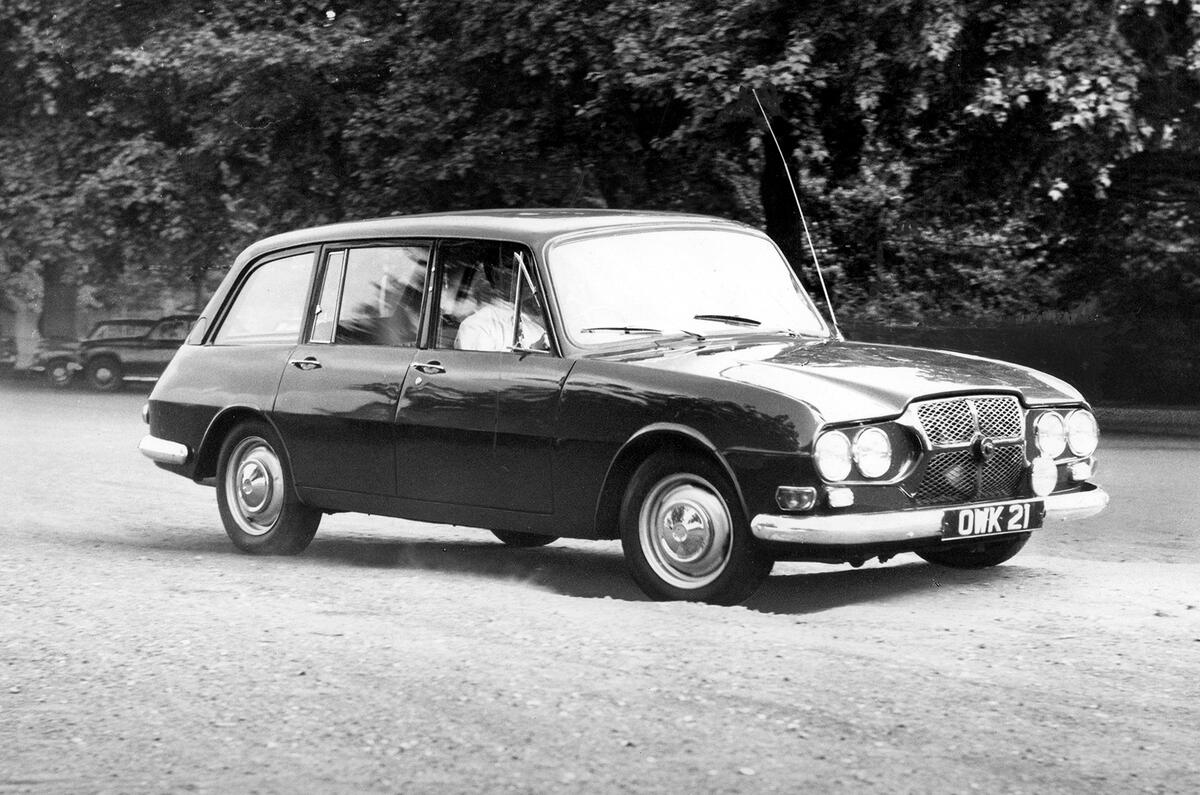Harry Ferguson revolutionised farming with his engineering ingenuity. Having made his fortune doing so, he set about changing the world of road cars.
Ferguson had a vision of a car that would use cutting-edge technology to be safer than existing production cars and provide decent traction even on the poor roads of developing countries.
In 1950 he formed Harry Ferguson Research, based in Coventry, to develop his ideas. Ferguson died in 1960, but the company carried on his work and revealed the prototype R5 in 1965.
The R5 had been in development for some years and looked dated by the standards of the day. But underneath it was truly forward-looking, with four-wheel drive, anti-lock brakes and a 2.2-litre flat four engine driving all four wheels through a Teramala torque converter and modified Mercedes-Benz manual gearbox. Torque was divided equally between front and rear wheels.
The all-disc brake set-up used a central Dunlop Maxaret anti-lock device and a vacuum servo. The car was handed to Autocar for a full road test in 1966.
“We were perhaps fortunate in having almost continuous rain while we covered some 800 miles in the car,” wrote our testers. “The Ferguson formula shows to best advantage when the conditions are slippery, and we soon came to enjoy our superior controllability over the other traffic.
Full-power step-offs could be used without wheelspin and corners could be rushed through as if the roads were dry.
“At MIRA we took even greater liberties in exploring its limits, which came eventually at extraordinarily high speeds on the inner road circuit.
“Initially there is some marked understeer as the wheels are turned for the beginning of a corner, but from this point on the car just drives round and pulls its way out from the apex without any tail flick or running wide.
“The braking system demonstrates the effectiveness of anti-lock for safety. It has not yet been perfected, but it still offers more control than present cars without it. The biggest criticism is the high pedal load needed for an emergency stop on a wet surface. As this effort is applied, the pedal ‘bounces’ under the foot at quite a slow and rhythmic rate as pressure in the lines is relieved cyclically to unlock the wheels.”
The R5 was bristling with other neat ideas, apart from proving the potential of the four-wheel drive philosophy.
“From the roller blind to cover the luggage behind the folding rear seats to the novel arrangement of switches around a fixed steering wheel boss, a lot of thought has gone into the R5. Perhaps for the time available, such an ambitious project has had too small a team.”





Join the debate
Add your comment
Different times
@LP
@ Bangbox